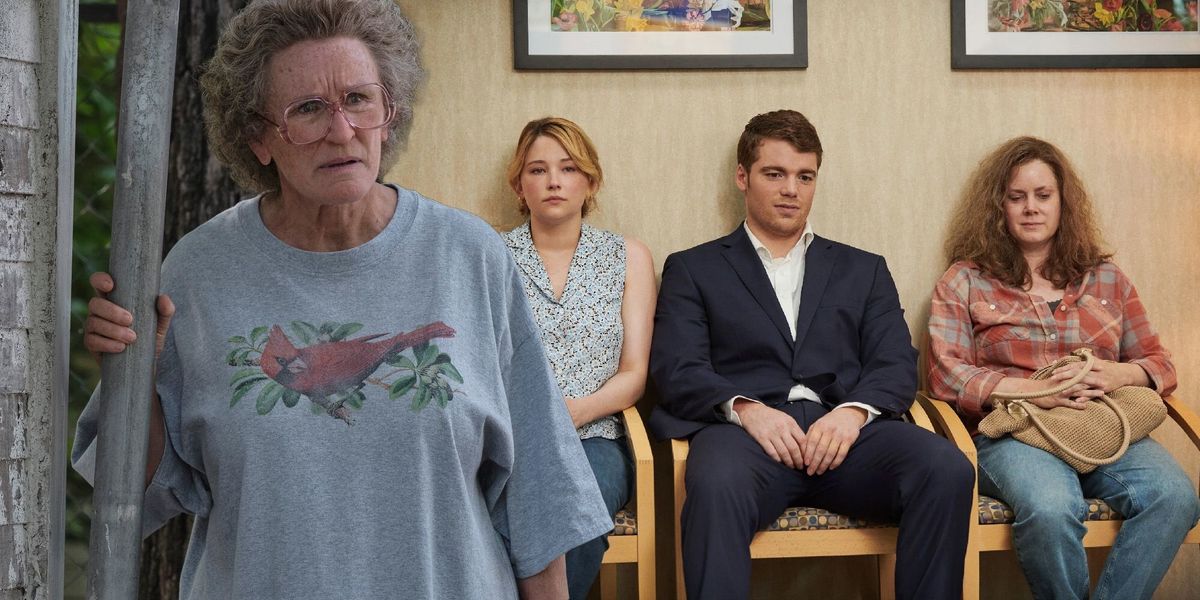
The film Hillbilly Elegy has been almost universally panned by critics, torn to shreds in a way possibly not seen since Cats.
Problems abound. First off, the movie is, somehow, fairly boring. It’s almost entirely lacking in aesthetic style, and it’s also completely devoid of politics. Why is that a problem?
Like the average moderate Democrat, it attempts to “humanize” and “understand” entire demographics but somehow falls short of anything approaching inspiration or genuine connection.
Like the average moderate Republican, it preaches an ethos of comeuppance and valorizes capitalist success.
Combine both of these things with a desire to avoid any sort of political statement and you get…whatever Hillbilly Elegy is.
The book, written by venture capitalist J. D. Vance, arrived shortly after the election and quickly became an oft-cited text that, essentially, was marketed as a window that would allow coastal dwellers to better understand the life of poor working class white people living in the middle of the country.
It’s clear that the “white working class” and “Appalachia” are neither monoliths nor synonyms nor a useful demographic for political analysis. Yet the book is still inextricably tied to the media’s 2016 obsession with “understanding” the illusion of the white Trump voter from the backwoods. Because of this, the book, and the story, are fundamentally political — a fact that the film doesn’t seem to acknowledge.
It’s clear at this point that the book didn’t help heal many American divides, and whatever attempt at “understanding” it did lead to mattered little. No group of people wants to be made into a monolith; and anyways, the connection between the people in Hillbilly Elegy and Trump supporters was always tenuous at best.
Many readers have also pointed out that the place where the movie takes place, Middletown, Ohio, is barely even in Appalachia; and anyway, Appalachia is a gigantic region that can’t be summarized by one story.
Vance sold himself as a man who could communicate what was happening in these communities, because he was of them.… https://t.co/ucbzkc3wRD— Mary Chuff (@Mary Chuff)1606310910.0
Reviews Are Reflections of the Reviewers
“Elegy isn’t meant for the people of Appalachia, or the Ozarks, or the Rust Belt. No hillbilly film is ever made for the people it depicts,” writes Sarah Jones in Vulture. “They’re intended for people with power and security, people who want to believe that money is the same thing as integrity or intelligence and that, conversely, an absence of money indicates something about a person’s character.”
Intriguingly, the same thing could be said of the film’s many negative reviews — many of which include deep analyses of Appalachian history and racial theory, and many critique the movie for its apparent nostalgia for whiteness, while never acknowledging that white liberalism (which preaches compassion while enacting no change) is just as damaging and dangerous as stereotypical Appalachian racism.
Many, written by people actually from Appalachia, express frustration with the film’s one-sided depiction of its characters and the region. Others, like Los Angeles celebrity Ben Shapiro, argued that the negative reviews come from the media’s hatred of Trump supporters.
Before seeing the film or Ben Shapiro’s tweet, I read some reviews and admittedly did think that many seemed uncannily aggressive in trashing the film. Some of them reeked of pretension. It couldn’t possibly be that bad, I thought…
I’ve seen “Hillbilly Elegy.” Amy Adams and Glenn Close are both terrific. The movie is a well-told family drama. Th… https://t.co/IdHaLZuHLJ— Ben Shapiro (@Ben Shapiro)1606230477.0
I wanted to give the movie a chance; but sadly, it simply was not a good or coherent film, and ultimately it left me feeling far emptier than I felt when I’d started it. And after reading many reviews and statements by people actually from Appalachia—statements that had nothing to do with conservatism and more to do with the way the film stereotyped whole groups of people—the film’s flaws only became clearer.
Some of its issues, perhaps, could have been avoided if the movie had been…better. What could have saved Hillbilly Elegy? Less screaming and more restraint from Amy Adams? Better writing? Better actors in the roles of Memaw and Bev? More happy memories? More violence?
If the characters were more traumatized and visibly impoverished, or less so? A more artistic film style? A political statement that expressly connected the opioid crisis to big pharma and emphasized the importance of systemic change?
More hair conditioner? If J. D. Vance had become a liberal politician rather than a venture capitalist?!
In the end, it’s hard to say. All or even one these things may have helped, but they don’t guarantee that the film would have succeeded. The fact that the film has been universally panned is sad in its own way, as it had some potential, if only to instigate some generally good discussions. But sadly, the Hillbilly Elegy film needs an elegy of its own.
better films + books about people in Appalachia, an incomplete list:
-hillbilly (2019)
-Heroin(e)
-Harlan County,… https://t.co/DOHqz5Uzvd— Sarah Jones (@Sarah Jones)1605710335.0


 60
60